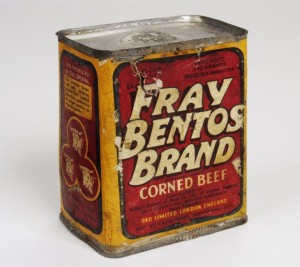Pleased to hear about Doris, I should love to see her for its such a long time since she saw her Biddy give her my love and I hope to see her soon as she left that school. Am surprised to hear about the old man getting married again, but I expected to see that come off and he is getting young again, have you seen her, who told you about it, good old mother (????thises) is that what she said you wasn’t to see Doris you tell Mrs C to what a bit don’t bolt her food, Ginger can please herself who she goes and sees, she must be nearly fourteen now.
20th September 1914
This is something of a revelation. I think we get snippets of family discord in previous letters so it’s not a total surprise. Frank’s father has, or is, getting married again. Frank’s parents, Frank and Ada, were living together in 1911. Something then went wrong between them. By 1914 Ada and Mabel are living with Walter “Mattie” Webster and his wife Caroline back in Brixton.
Frank Senior may have possibly already got married again in April 1914 to a Gertrude Watson (as a Frank Crawshaw got married in Islington at that time) but I haven’t been able to prove this is him yet. I need to order the marriage certificate.
Divorce in 1914 was supposedly uncommon and, socially, it was frowned upon. In the first decade of the 20th century, there was just one divorce for every 450 marriages. I took the following statistics from the Guardian’s excellent data blog: 2600 couples got divorced between 1911 and 1914. 1397 divorces were instigated by the man and 1203 by the woman. Incidentally this figure rose to an all-time-high of 165,018 divorces in 1993.
A recent Parliamentary article on divorce cites that only men could instigate divorce before 1923 but I can’t understand how this would be when women are listed as the petitioners in 1911-1914. This is also disproved by this story in the Nottingham Evening News in 1914. It makes for depressing reading so be warned. Weirdly, my other great great grand parents, Reginald and Hannah Elliman, were also getting divorced around this time. For something that was supposedly very rare at the time, especially in the working classes, there was a lot of it about.
I love Frank’s spelling of thesis. He is defending Ginger (Doris), their younger sister as she’s obviously seen her father and her mother does not like this at all. Doris was actually 12 – she was born in January 1902. The school he mentions unearths another Crawshaw family mystery. I’ve found Doris in the 1911 Census and she’s boarding at a school in Stroud, Gloucestershire. More of this tomorrow.
The Dorsets spent the day digging trenches between Le Pavillon Farm and Sermoise. At 7.30pm they were ordered to assemble at Sermoise, but the order was immediately cancelled and they returned to their billets in Jury.

